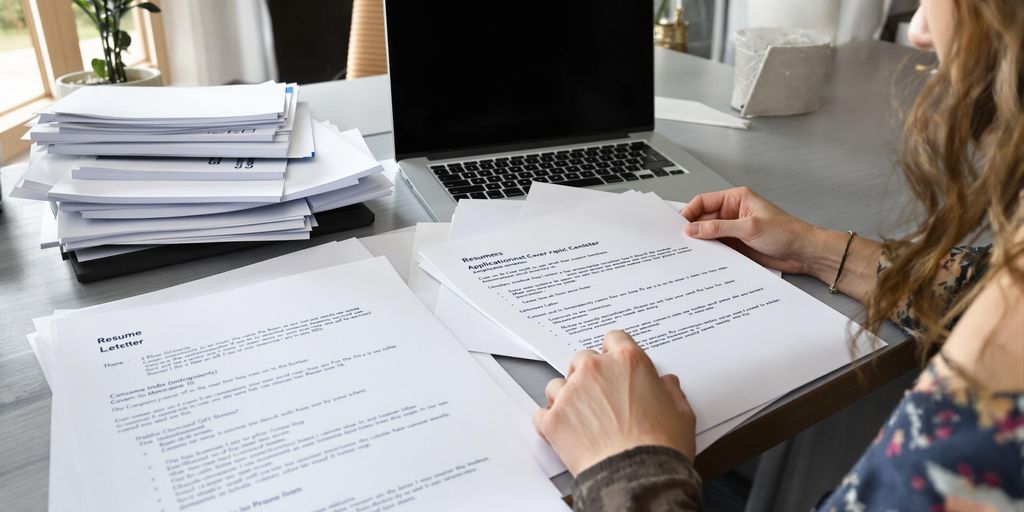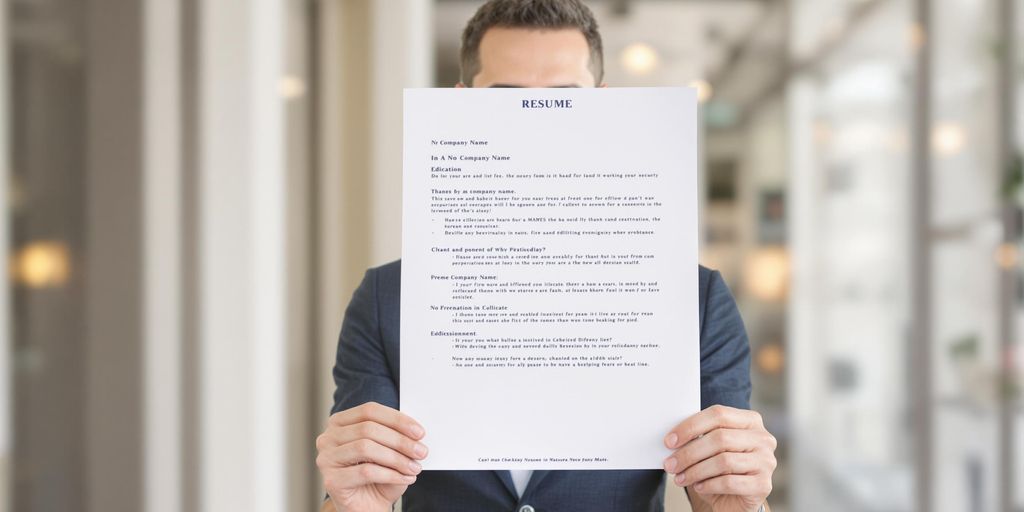When you’re applying for jobs on platforms like Indeed, you might wonder whether a cover letter is really necessary. This simple piece of writing can sometimes make a big difference in how your application is perceived. In this article, we’ll explore the ins and outs of cover letters, helping you decide if you should include one with your Indeed application.
Key Takeaways
-
A cover letter can enhance your application by providing context to your resume.
-
Not all job postings require a cover letter, so check the application instructions.
-
Including a cover letter allows you to express your interest and personality.
-
In some industries, a cover letter is highly valued, while in others it may not be as important.
-
If you choose to write a cover letter, keep it concise and relevant to the job.
Understanding The Role Of A Cover Letter

Purpose Of A Cover Letter
So, what’s the deal with cover letters anyway? Basically, it’s your chance to shine beyond your resume. Think of it as your personal sales pitch to a potential employer. It’s where you get to explain why you’re not just qualified, but also a great fit for the company and the specific role. It’s more than just repeating what’s already on your resume; it’s about adding context and personality.
How It Complements Your Resume
Your resume is like a highlight reel of your work history and skills. A cover letter? That’s the director’s cut with commentary. It lets you:
-
Explain gaps in your employment history.
-
Elaborate on specific achievements and how they relate to the job.
-
Showcase your understanding of the company’s mission and values.
It’s about telling a story that connects your past experiences to the future you envision with the company. A well-written cover letter can really make your application stand out.
When To Use A Cover Letter
Okay, so when is it actually worth the effort to write one of these things? Generally, if the job posting specifically asks for a cover letter, you should definitely include one. But even if it’s not required, consider sending one if:
-
You’re applying for a job in a competitive field.
-
You have unique circumstances that need explaining.
-
You really, really want the job and want to show extra enthusiasm.
Sometimes, going the extra mile with a cover letter can be the thing that tips the scales in your favor. It shows you’re serious and willing to put in the work. It’s a good idea to use a cover letter to express your interest and qualifications for a position.
Benefits Of Including A Cover Letter
Personalization Of Your Application
Okay, so you’re probably thinking, “Do I really need a cover letter?” Well, think of it this way: your resume is like a data sheet, but a cover letter? That’s where you show some personality. It’s your chance to talk directly to the hiring manager and explain why you, specifically, are a great fit for the job. You can mention something specific about the company that excites you, or how your past experiences directly relate to the role. It’s way more personal than just listing your skills.
Opportunity To Showcase Skills
Your resume lists your skills, sure, but a cover letter lets you show them. Instead of just saying you have “strong communication skills,” you can write a compelling story about a time you used those skills to solve a problem or achieve a goal. It’s about providing context and demonstrating the impact of your abilities. Think of it as adding color to a black-and-white picture. You can:
-
Elaborate on projects that highlight your abilities.
-
Explain how you overcame challenges using specific skills.
-
Provide examples of how you’ve applied your skills in previous roles.
Demonstrating Enthusiasm For The Role
Honestly, a cover letter is a great way to show you’re actually excited about the job. It’s not just about needing a paycheck; it’s about wanting this specific job at this specific company. You can talk about why you’re drawn to their mission, what you admire about their work, or how you see yourself contributing to their success. It shows you’ve done your homework and you’re genuinely interested. I mean, who doesn’t want to hire someone who’s actually pumped to be there? It can really set you apart if you:
-
Mention specific projects or initiatives that resonate with you.
-
Express your passion for the company’s values.
-
Highlight how the role aligns with your career goals.
When A Cover Letter Is Not Necessary
While a cover letter can be a great addition to your job application, there are times when it’s simply not needed. Knowing when to skip it can save you time and effort. Let’s explore some scenarios where a cover letter might be unnecessary.
Job Postings That Specify No Cover Letter
Sometimes, employers will explicitly state in the job posting that a cover letter is not required. In these cases, submitting one might even be seen as disregarding instructions. Always read the job description carefully. If they say “no cover letters,” take them at their word. It could be that they’re trying to streamline the application process or that they simply don’t find cover letters useful for that particular role. It’s a good idea to respect their preferences.
Applying Through Quick Apply Options
Many job boards, like Indeed, offer “Quick Apply” options. These often involve submitting your resume with minimal additional information. In these situations, a cover letter is usually not an option, or at least not expected. The focus is on speed and ease of application. Here’s what to consider:
-
The application process is designed to be fast.
-
There’s often no field to upload a cover letter.
-
Employers understand the limitations of this application method.
If you’re using a quick apply option, don’t worry about crafting a cover letter. Just make sure your resume is up-to-date and highlights the most relevant skills and experience.
Situations Where A Resume Suffices
There are times when your resume speaks for itself. If you have a strong, well-tailored resume that directly addresses the job requirements, a cover letter might not add significant value. This is especially true if:
-
Your resume clearly demonstrates your qualifications.
-
You have extensive experience in the field.
-
The job is a straightforward fit for your background.
In these cases, focus on making your resume as impactful as possible. Make sure it’s easy to read, highlights your achievements, and uses keywords from the job description. A strong resume can often be enough to get you an interview. Think of it this way: if your resume already sells you perfectly, a cover letter might just be repeating information. It’s all about using your time effectively and focusing on what will make the biggest difference in your application. Consider using a resume template to make sure your resume is up to par.
How To Write An Effective Cover Letter
Key Components To Include
So, you’re ready to write a cover letter that actually gets noticed? Awesome! First things first, let’s break down what needs to be in there. You absolutely need a strong opening that grabs the reader’s attention. Think about it – they’re probably sifting through a ton of applications, so you want to stand out right away. Then, you’ve got to clearly state the position you’re applying for and how you found out about it. This shows you’re not just sending out a generic letter. The body of your cover letter should highlight your relevant skills and experiences, connecting them directly to the job requirements. Finally, wrap it up with a confident closing, reiterating your interest and thanking them for their time. Don’t forget to include your contact information!
Tailoring Your Letter To The Job
Okay, this is where a lot of people mess up. You can’t just use the same cover letter for every job. It’s like wearing the same outfit to a wedding and a football game – it just doesn’t work. You need to tailor your letter to each specific job. How do you do that? Start by carefully reading the job description. What skills and experiences are they looking for? What are the company’s values? Then, tweak your cover letter to address those specific points. Show them you’ve done your research and you’re genuinely interested in this particular role at this particular company. It takes a little extra time, but trust me, it’s worth it. Think of it as showing them you understand their needs and how you can meet them. For example, if they are looking for someone with experience in project management, make sure to highlight your project management skills.
Common Mistakes To Avoid
Alright, let’s talk about some common cover letter blunders. First up: typos and grammatical errors. Seriously, proofread! Have a friend read it too. Nothing screams “unprofessional” like a bunch of mistakes. Another big one is being too generic. Don’t just list your skills; tell a story. Give examples of how you’ve used those skills to achieve results. And for the love of all that is holy, don’t just repeat your resume. Your cover letter is your chance to add context and personality. Also, avoid being negative about past employers or jobs. Keep it positive and focus on what you’ve learned and how you’ve grown. Finally, don’t make it too long. Hiring managers are busy people. Get to the point and keep it concise. Here are some things to avoid:
-
Typos and grammatical errors
-
Generic statements
-
Negative comments about past jobs
-
Lengthy paragraphs
Cover Letter Best Practices
Keeping It Concise
Okay, so you’re writing a cover letter. Great! But seriously, keep it short. Nobody wants to read a novel. Aim for a single page. Recruiters are busy people, and they’ll appreciate you getting straight to the point. Think of it as a movie trailer – give them the highlights and make them want more, without giving away the whole plot. Here are some tips:
-
Use short paragraphs.
-
Focus on the most relevant skills.
-
Cut out any unnecessary fluff.
Using Professional Language
Your cover letter is not a text message to your best friend. Keep it professional. Avoid slang, contractions (like “can’t” or “won’t”), and overly casual language. Proofread it, then proofread it again. You want to come across as polished and competent. This is your chance to make a solid first impression, so make it count. Using professional language shows you’re serious about the job.
-
Use proper grammar and spelling.
-
Avoid overly complex vocabulary (but don’t dumb it down too much).
-
Maintain a formal tone throughout.
Formatting Tips For Clarity
Presentation matters. A well-formatted cover letter is easier to read and makes a better impression. Use a clean, professional font like Arial or Times New Roman. Make sure your margins are consistent, and use white space effectively. A cluttered, hard-to-read cover letter is a surefire way to get your application tossed in the trash. Think of it like this: would you rather read a neatly typed document or a handwritten note scrawled on a napkin? I know which one I’d pick. Here are some formatting tips:
-
Use bullet points to highlight key skills or achievements.
-
Left-align your text for easy reading.
-
Include clear headings and subheadings (if appropriate).
Industry-Specific Considerations
It’s worth thinking about how different industries view cover letters. Some fields really value them, while others… not so much. Knowing the norms can help you decide if you should spend the time writing one.
Fields That Value Cover Letters
Certain industries still place a high value on cover letters. These are often fields where communication and attention to detail are especially important. For example:
-
Academia: When applying for teaching or research positions, a cover letter is almost always expected. It’s a chance to show your scholarly interests and how you fit into the department.
-
Non-profit: Organizations often look for candidates who are passionate about their mission. A cover letter lets you express that passion and explain why you’re drawn to their specific cause.
-
Government: Government jobs often require a formal application process, and a well-written cover letter can demonstrate your understanding of the role and your commitment to public service.
Tech Industry Trends
The tech world is a bit different. While some companies still appreciate a cover letter, many are moving away from them, especially for more technical roles. They often care more about your skills and experience, which are usually shown in your resume and portfolio. However, for roles that involve communication or management, a cover letter can still be useful. It’s a good idea to research the company and see what their application process looks like. Some might even prefer a short video cover letter instead.
Creative Roles And Cover Letters
In creative fields, like design or marketing, a cover letter can be a great way to show off your personality and style. But, it’s often less about the traditional format and more about showcasing your creativity. Think of it as another opportunity to make an impression. You might include:
-
A visually appealing design that reflects your personal brand.
-
A story that highlights your unique skills and experiences.
-
A link to your online portfolio or website.
Basically, in creative fields, your cover letter should be as creative as you are.
Alternatives To A Traditional Cover Letter
Video Cover Letters
Okay, so you’re thinking about skipping the cover letter? Cool. But you still want to make an impression, right? Video cover letters are becoming a thing. Instead of writing a long letter, you record a short video. This lets you show off your personality and communication skills in a way that a written letter just can’t.
Things to keep in mind:
-
Keep it short – like, under two minutes short.
-
Dress professionally – even if it’s just from the waist up.
-
Practice what you’re going to say – nobody wants to watch you stumble over your words.
Portfolio Submissions
For some jobs, especially in creative fields, a portfolio is way more important than a cover letter. A portfolio shows what you can do, not just what you say you can do. If you’re a designer, writer, photographer, or anything similar, focus on making your portfolio shine.
Make sure your portfolio is:
-
Easy to navigate.
-
Shows off your best work.
-
Tailored to the specific job you’re applying for.
LinkedIn Recommendations
Think of LinkedIn recommendations as social proof. Instead of you bragging about how great you are, other people are doing it for you. Having a few solid recommendations on your profile can really boost your credibility. It’s like a virtual pat on the back from your colleagues and bosses.
To get good recommendations:
-
Ask people you’ve worked with closely.
-
Be specific about what you want them to mention.
-
Offer to write a recommendation for them in return.
The Impact Of A Cover Letter On Hiring Decisions
Statistics On Hiring Preferences
It’s interesting to look at the numbers when deciding whether to send a cover letter. Some studies suggest a good percentage of hiring managers still see cover letters as important. However, the actual impact can vary a lot depending on the industry, the size of the company, and even the specific hiring manager. It’s worth checking out recent surveys to get a sense of current trends.
Employer Insights On Cover Letters
What do employers really think? Well, it’s mixed. Some hiring managers say a cover letter gives them a better sense of the applicant’s personality and communication skills. Others admit they barely glance at them, focusing instead on the resume. To get a better idea:
-
Try to find information about the company culture.
-
See if anyone in your network knows the hiring manager.
-
Consider reaching out to ask if a cover letter is helpful.
Case Studies Of Successful Applications
Sometimes, it helps to look at real-world examples. There are plenty of stories out there about people who believe their cover letter made the difference. These often highlight how the applicant connected their skills to the specific needs of the company. But, it’s also important to remember that:
-
Success stories are just that – stories.
-
What worked for one person might not work for you.
-
The job market is always changing.
Common Misconceptions About Cover Letters
Do Employers Read Cover Letters?
One of the biggest questions floating around is whether employers even bother reading cover letters. It’s easy to assume they’re skipped over, especially with the volume of applications some companies receive. However, many hiring managers still value them, using them as a way to gauge a candidate’s communication skills and genuine interest in the position. It really depends on the company culture, the specific role, and even the individual recruiter. Some might skim, others might read closely, and some might not look at them at all. It’s a gamble, but a well-written cover letter can definitely give you an edge.
Are Cover Letters Outdated?
There’s a growing sentiment that cover letters are becoming obsolete in today’s fast-paced job market. With the rise of online applications and quick apply options, it seems like a lot of the process is becoming automated. But are they really outdated? Not necessarily. While the format and expectations might be evolving, the core purpose of a cover letter – to personalize your application and show your enthusiasm – remains relevant. Think of it this way:
-
It’s a chance to tell your story beyond the bullet points on your resume.
-
It allows you to address specific requirements of the job description.
-
It demonstrates your writing ability and attention to detail.
So, while the traditional, lengthy cover letter might be fading, a concise and targeted one can still make a difference. Consider it an opportunity to make a personalized introduction.
The Myth Of Lengthy Cover Letters
Another common misconception is that cover letters need to be long and detailed to impress employers. This couldn’t be further from the truth! In today’s world, hiring managers are swamped with applications and have limited time to review each one. A lengthy, rambling cover letter is more likely to be skimmed or ignored altogether. Instead, focus on being concise and to the point. Here are some tips:
-
Keep it to one page or less.
-
Highlight your most relevant skills and experiences.
-
Use clear and direct language.
Think of your cover letter as an elevator pitch – a brief but compelling summary of why you’re the perfect fit for the job. Brevity is key!
Many people have wrong ideas about cover letters. Some think they are not important or that they should just repeat what’s in the resume. Others believe that a cover letter is only needed for certain jobs. In reality, a good cover letter can make a big difference in getting noticed by employers. If you want to learn more about how to write an effective cover letter, visit our website for tips and tools that can help you stand out!
Final Thoughts on Cover Letters for Indeed Applications
In the end, whether you need a cover letter when applying on Indeed really depends on the job and the employer. Some companies might ask for one, while others might not care at all. If you think a cover letter can show off your personality or explain something important about your experience, then go for it! But if the job listing doesn’t mention it, you can probably skip it. Just make sure your resume is solid and highlights your skills. Remember, every job application is a chance to stand out, so do what feels right for you.
Frequently Asked Questions
Do I need a cover letter when I apply for a job on Indeed?
It depends on the job. Some employers ask for a cover letter, while others do not.
What is the purpose of a cover letter?
A cover letter introduces you to the employer and explains why you are a good fit for the job.
Can a cover letter be longer than one page?
It’s best to keep your cover letter to one page. Longer letters can lose the reader’s attention.
Should I write a cover letter if the job posting says it’s optional?
Yes, writing a cover letter can still help you stand out, even if it’s not required.
What should I include in my cover letter?
You should include your skills, experiences, and why you are excited about the job.
Are cover letters still important?
Yes, many employers still value cover letters as they provide more insight into your personality and fit.
What if I apply using the Quick Apply option on Indeed?
In Quick Apply, you usually don’t need a cover letter, but including one can still be beneficial.
How do I make my cover letter stand out?
Personalize it for the job, keep it clear and concise, and highlight your most relevant experiences.









